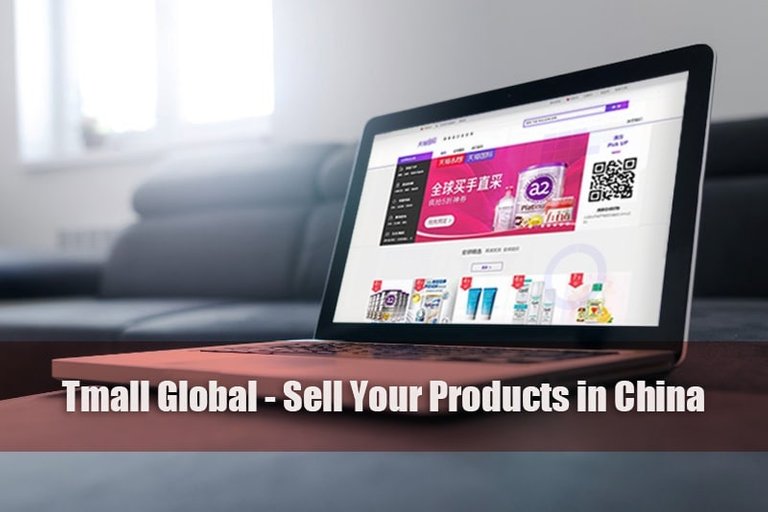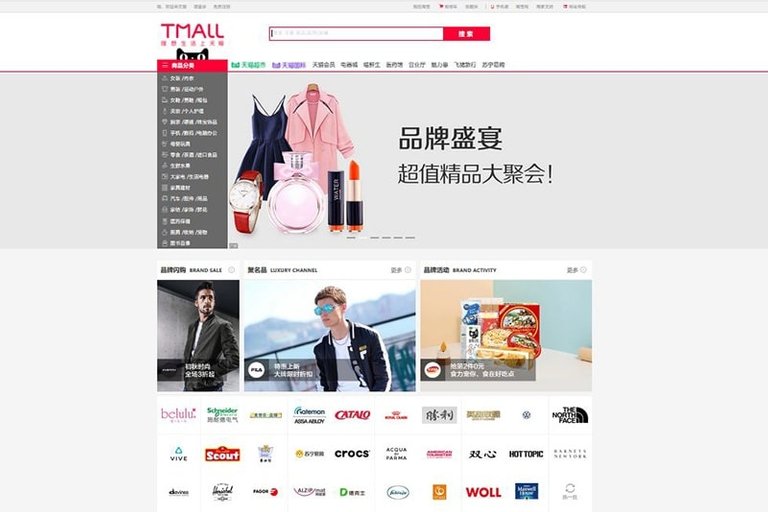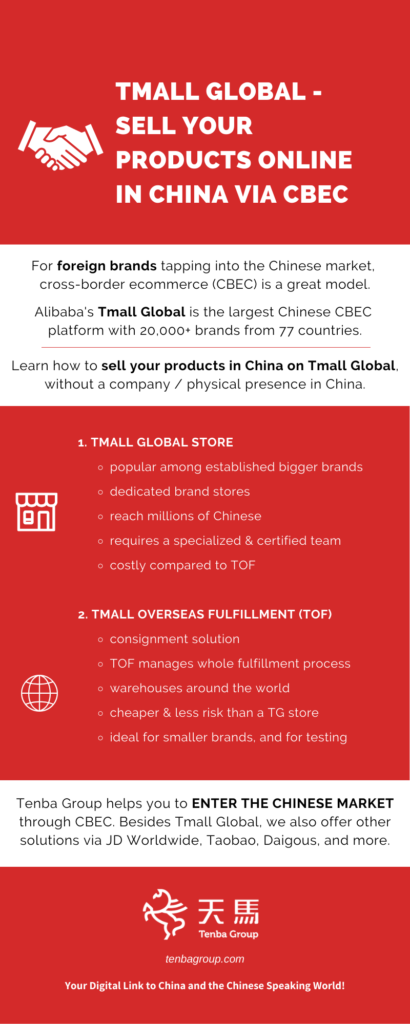
Tmall Global - Sell Your Products in China
By now, you know that the China ecommerce market is the largest in the world with a sales volume of 2 trillion USD per year. Moreover, online retail continues to grow rapidly.
Alibaba’s Tmall China and Tmall Global are major ecommerce players in China. So, in this article by Tenba Group, your favorite China online marketing company, we reveal everything you need to know about how to sell your products in China. This article focuses on Tmall Global, but also gives you an introduction to other CBEC solutions with different benefits.
The CBEC Market in China
With 1.4 billion people, China is the largest country in the world by population. The economy is experiencing a boost in recent years with a GDP growth of 6% in 2019. However, in 2020, the trade war with the US and the Coronavirus pandemic may slow this growth momentarily.
Still, Chinese consumers are euphoric to buy luxurious imported products like cosmetics, fashion, organic food, and baby products. Chinese shoppers love foreign goods because they are generally associated with higher quality and stricter safety standards. Besides, as everywhere in the world, these luxurious products boost the image of the person owning them.
And where do they find these products? Chinese who don’t want to buy foreign products by traveling abroad or buy through Daigou, choose established CBEC platforms. In fact, online shoppers in the Middle Kingdom simply can’t get enough of cross-border commerce platforms.
The most popular online marketplaces are Tmall Global, Kaola, and RED to buy high-quality and luxury foreign brands. The Chinese CBEC market continues to thrive, expecting to exceed a retail sales value of 200 billion USD in 2022.
So, How to Sell Products Online in China?
More and more international businesses look at penetrating the Chinese market due to its enormous potential. But, what is the best way to do that? This depends on your budget and objective for the Chinese market. In this article, we present you
- Tmall Global
- Other Platforms
1. Tmall China
Tmall China (天猫) was launched in 2008 by the Alibaba Group as Taobao Mall. It is an online B2C platform (business to consumer), targeting consumers in mainland China.Tmall.com is the largest Chinese B2C retail website with a gross merchandise volume of more than 360 million USD in 2019. The largest competitors are Suning, JD.com (Jingdong, formerly 360buy), and Mogujie.
Just like on Taobao Marketplace, Alibaba’s C2C ecommerce platform, buyers and sellers communicate directly on Tmall China through Ali Wang Wang (阿里旺旺). It has become a habit among buyers to “chat” on this instant messenger to ask questions and bargain before the purchase. AliPay is the preferred payment solution.

Today, Tmall China has more than 500 million monthly users, who can choose from more than 70,000 international and Chinese brands on the platform from more than 50,000 merchants. Chinese consumers love to shop for branded goods. From fashion and accessories to tech, and from baby products to food. And it may surprise you to read, but Tmall China is the third most visited website in the world! But Tmall China only accepts businesses that have an offline presence in China.
So, if you want to sell products in China
- as an international business without an offline presence in China or
- if you want to sell cruelty-free products (animal testing is still a must in China for cosmetics, although this regulation is gradually being revised)
Tmall Global
In 2014, China’s commerce giant, Alibaba, launched Tmall Global. It is the largest Chinese cross-border ecommerce platform with one third market share. Currently, they offer more than 20,000 brands from 77 countries.It is a great marketplace for foreign brands to sell directly to Chinese consumers, and without having a company or physical presence in China. Interestingly, among the biggest flagship stores on Tmall Global are Costco (US warehouse chain) and DM (German drugstore).
So, for your foreign business, Tmall Global is the way to go for the CBEC trade from the world to China. There are two ways for foreign brands to sell on Tmall Global:
- Tmall Global Flagship Store (TMG): most popular, suitable for bigger brands
- Tmall Overseas Fulfillment (TOF): suitable for new and smaller brands
In fact, Tmall Global normally sends an invitation to brands they see as a fit for their platform. Therefore, building brand awareness in the Middle Kingdom is an important first step if you want to expand into China.
Tmall Stores
There are 4 shop types to choose from:
- Flagship store: requires trademark registration in Hong Kong
- Flagship store (Marketplace): requires the class 35 trademark (“Service Mark”) in Hong Kong
- Authorized store: requires trademark registration in Hong Kong (can be pending)
- Specialty store: requires evidence of product source, shop name must not infringe copyright
- Determine requirements and resources
- Sign Tmall Global / AliPay agreement
- Store Development
- Select a Tmall Partner Agency for store management
- Pre-Launch
- Launch
Tmall Overseas Fulfillment (TOF)
From autumn 2019, Tmall Global offers TOF (Tmall Overseas Fulfillment). This is essentially a CBEC consignment solution that lets brands sell a small number of products on Tmall Global.
Tmall Global takes care of the whole fulfillment process with the logistics managed by their own warehouses around the world, the so-called Alibaba’s Cainiao (菜鸟网络). This reduces the logistics and storage costs for suppliers.
The only “hurdle” to take is that businesses have to get their products at one of the TOF centers. They are located, for example, in Japan, South Korea, and the US. There are also plans to expand them to Europe.
TOF as a new collaboration model is perfect for businesses, which are new to the Middle Kingdom, and want to target the increasing middle-class consumer base. They can test their products and modify them to the taste of Chinese consumers.
Thanks to the consignment model, Tmall takes care of everything, including marketing. In turn, this means you have less control over the details of your products, for example, positioning and cross-promotion.
Tmall Global Takeaway
Tmall Global is a dedicated brand store, where millions of Chinese consumers await. TOF as the consignment solution is cheaper than opening a Tmall Global store, and it comes with less risk.
To sum it up, Tmall Global stores are great for established big brands. TOF is a clever solution for smaller brands authorizing a smaller budget.
Until recently there used to be a third option for international brands selling on Tmall Global: Tmall Direct Import (TDI). This was a specialized store for top-selling lifestyle products. However, this wholesale (B2B2C) model where the TDI team bought products from brands/suppliers and took care of everything (product listing, sales, marketing, delivery), has now been discontinued.
2a. JD.com & JD Worldwide
JD’s major stakeholder is Tencent (WeChat, QQ) so that JD products are also shown on WeChat when searching for products. JD Worldwide (JD.hk) is the cross-border platform of JD.com, just like Tmall Global is the CBEC platform for Tmall China. And due to Tencent’s investment, the JD platforms use WeChat Pay instead of AliPay.
Compared to Tmall Global, the advantage of JD Worldwide is that it is cheaper to launch international products. But JD Worldwide, originally famous for electronics, is also significantly smaller than Tmall Global.
2b. TaoBao
Alibaba’s TaoBao is the world's largest ecommerce website. The marketplace features more than 1 billion products, which sellers can sell with a fixed price (majority) or through an auction.
TaoBao is a C2C platform for small businesses and individual entrepreneurs, who can open online stores that mainly target consumers in mainland China, Hong Kong, Macau, and Taiwan. The sellers typically offer an express delivery service, and buyers can assess the sellers with comments, complaints, and so on.
2c. WeChat Shop
With more than 1 billion monthly active users, WeChat is China’s super-app for literally everything. A native WeChat store is a mobile platform that connects to the menu of an official WeChat account. You can customize your content, layout, and prices. In the menu of your WeChat account, you can add links to your shops, for example, with an H5 app, a mini-program, or an external website.
The “one-click-payment” function of WeChat Pay allows a quick and easy payment checkout if the shop owner implemented the WeChat Pay gateway. As WeChat is booming, more and more businesses create WeChat stores.
2d. Distribution Model
The advantage of the distribution model is that it is relatively cheap, as you don’t need to create your own store. The third-party, for example, the Daigou, buys the products from you wholesale and then sells your products to the Chinese end consumers (B2C). Alternatively, the Daigou uses the dropshipping model.
This distribution model creates brand awareness. But the products are not in your own branded store, so you have less influence and control.
2e. Hybrid Model (Tenba Group)
A hybrid model is, for instance, converting an external webshop like WooCommerce into a WeChat mini-program. This mini-program is then linked, for example, to an official WeChat account. It then is no longer a stand-alone external shop.
This is one of Tenba Group’s areas of expertise - converting from a WooCommerce shop (WordPress) to a WeChat mini-program. As a result, your product sales will go through the backend in WooCommerce, even though you promote the products on WeChat.
Therefore, your whole sales and fulfillment process is centralized. This is the preferred method for foreign brands because they can keep their existing shop system while expanding into the Chinese market.
The Takeaway
Now you know the Chinese cross-border ecommerce landscape in detail. We took a deep dive into Tmall Global and looked at ways to sell foreign products in the Chinese market through various CBEC channels and distribution forms - from your own Tmall store to TOF. Moreover, we analyzed the advantages and disadvantages of each distribution model.
- Bigger brands with more budget benefit from a
- Tmall Global store
- JD Worldwide store
- Smaller brands with a lower budget, for testing & fine-tuning products, can go for a
- TOF shop
- Taobao shop
- WeChat shop
- Distribution model (e.g. Daigou)
- Brands who seek more control and power over their products and positioning may want to look at the
- Hybrid model (Tenba Group)

Together with our long-time trusted network, we organize TOF for your business, promote your brand via Tmall Global, JD Worldwide, or Taobao. We also set up a WeChat shop for you, connect you to Daigous, and create your own hybrid solution with a WeChat mini-program. Guaranteed hassle-free!
Besides, we also manage your international trademark registration. Moreover, we create and implement your successful strategy for marketing in China, advertising in China, and Baidu SEO. So, make sure to contact us to skyrocket your business in China!
Do you want to find out even more about the Chinese market, and how to successfully enter it? Click here to read our blog with the latest industry insight and best marketing tips for China.
Posted from my blog with SteemPress : https://tenbagroup.com/tmall-global-sell-your-products-in-china/